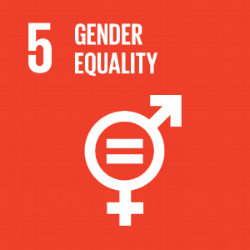The government has drafted National Gender Equality Policy-2019, which aims to institutionalize gender-responsive governance systems at three levels, making the annual budget gender-friendly and establish a just, prosperous and equitable society.
The policy is in accordance with the constitution. Article 38 of the constitution states that every woman shall have equal rights without gender discrimination and no woman shall be subjected to physical, mental, sexual, psychological or other forms of violence or exploitation on grounds of religion, social, cultural tradition, practice or on any other basis.
On the basis of proportional inclusive principles, women have the right to participate in all bodies of the state and on the basis of positive discrimination, have the right to receive special opportunities in education, health, employment, and social security.
It was important to develop this policy as Nepal is also a party to the Convention on the Elimination of all Forms of Discrimination Against Women adopted in 1979, by the United Nations General Assembly. The concept of policy is’ building a nation with gender equality’ and aims to achieve gender equality by 2030, through the economic and social empowerment of women.
The policy aims to remove discriminatory barriers to the socio-economic development of women, children, and adolescents; Ending gender-based violence; Adopt a gender-responsive governance system, and gain financial empowerment of women.
To implement these objectives, the government will effectively implement women’s fundamental rights relevant laws, conduct social awareness programmes; bring about consistency among the federal, provincial and local laws; to develop a gender-friendly family and society; strongly enforce the policy of zero-tolerance against gender-based violence; adopt gender-responsive policy while making policies, plans and laws; empower women to ensure their access to all bodies of the state; increase the participation of women in income-generating activities; reduce business and social risk in women’s economic activities and ensure their equal representation in decision level.
The proposed policy also called conducting orientation programs to help stakeholders realize the need for a special law on gender equality. Community organizations and local groups will implement policies and programs for gender equality and proportional inclusion and will be mobilized to end all forms of discrimination and violence against women.
Special arrangements will be made to ensure equal opportunities for marginalized, minority and rural women of all regions. In the curriculum, gender equality will be promoted from the elementary school level by incorporating this subject.
The policy stated that existing laws will be strongly enforced to end sexual harassment at the workplace and public places. Women and Children Service Centre of Nepal Police will be further strengthened to discourage violence against women and children through legal remedy.
The policy outlined the provision for the establishment and operation of protection and rehabilitation homes for women and children suffering from violence while warning them of the negative effects of cybercrime. It has treated chhaupadi practice as gender-based violence because many women and girls are still prohibited from participating in normal family activities during menstruation.
“More women will be engaged for the development of the national economy and economic surveys will be conducted to realize their contribution to the nation’s prosperity. For this, exclusive skill development programs will be conducted for women. Women entrepreneurship fund will be promoted and mobilized“-states the policy.
It also created a profile of female economists and encouraged women to play a leading role in creating more employment opportunities.
The policy has arranged for a 14-member Gender Quality National Steering Committee led by the Minister for Women, Children and Senior Citizens for its effective implementation
Source: THT







